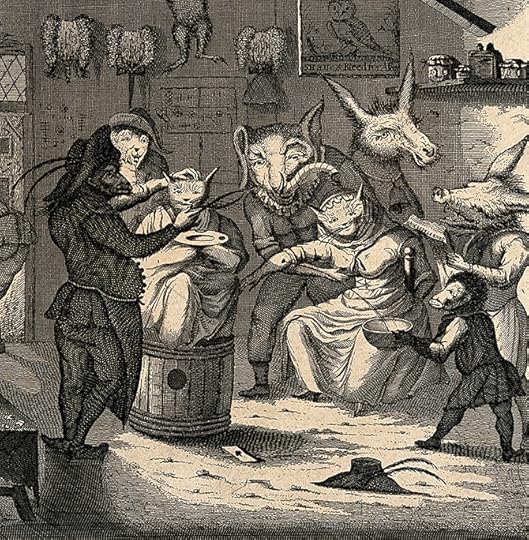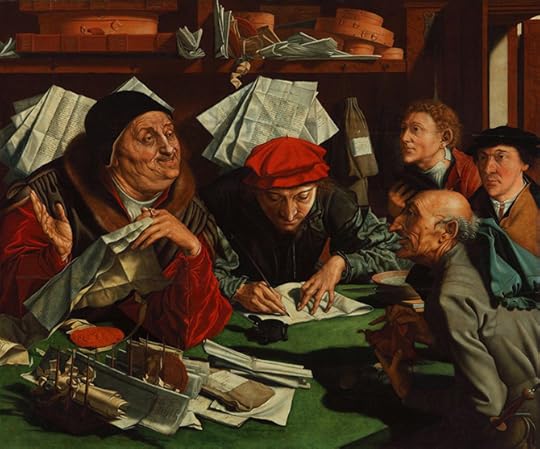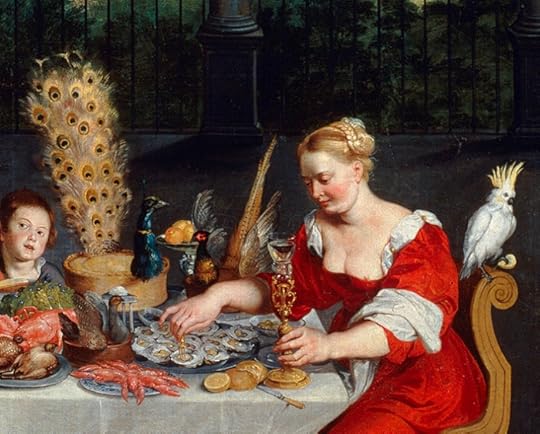Midori Snyder's Blog, page 13
September 28, 2019
Foreign Lander and the Life of the Sailor/Soldier
I recently came across this beautiful and haunting folk song -- sung here by Tim O'Brien, whose mournful fiddle is as haunting as the song. It is an odd combination of of martial spirit, the soldier's success in battle, pride in his accomplishments at having served with brave commanders and an unanswered longing for a woman whose "beauty has conquered me." We are I think, more aware of the female lament song, the soldier gone to war leaving her to wait (or not) seven years, the rake who abandons her with a baby, the lover murdered by her brothers. Such a list of catastrophes that separate a couple.
But this one is strangely as modern as it is historical -- sung at least two hundred years ago by British singers, and then reformed in slightly altered versions in Appalachia, that second home for British folk songs remade in the language of the hill country folk. One can read the sentiments in the Civil War and WWI and WWII letters of soldiers who have fought many wars, finally ready to put away the sword and return home to a waiting wife and children. For those who remained unmarried during their service, it is to hope to find love and settle down, far from the where "the wild beasts howl."
We are a military family, and so I know many of those modern-day fighters for whom this song would resonate. The more specialized the warriors, such as those in special forces, the more likely marriages fall apart due to the long deployments and the stress of being alone. Often, those warriors remarry successfully, but only after they have resigned their commission. Late families still bring children and joy. And there are those warriors, like the Foreign Lander, who wait until they are ready to leave, until they feel their work is finally done, until they step down from doing the task for which they are uniquely suited, and for when they can at last transfer their undying loyalty for brothers on the battlefield for a life at home, and a woman "whose beauty has conquered" him.
Here are the lyrics:
I've been a foreign lander for seven years or more.
Among the brave commanders where wild beasts howl and roar.
I've conquered all my enemies on land and on the sea, but you, my dearest jewel, 'tis you have conquered me.
I cannot build a ship of love without the wood of trees.
The ship would burst asunder should I prove false to thee.
If ever I prove false, love, the elements would moan.
The fire would turn to ice, love, the seas would rage and burn.
Have you heard the mourning dove?
She's flying from pine to pine.
She's mourning for her own love the way I mourn for mine.
I lie awake out in the night.
I see the shining stars.
I wonder if you see them too wherever you are.
Here is a lovely version sung by Jean Ritchie which includes some fascinating additional verses. http://research.culturalequity.org/rc-b2/get-audio-detailed-recording.do?recordingId=12781
June 25, 2019
Madeleine and Bohemian Paris
This has been such a fertile time looking toward the past. Daily, thanks to my cousin Earl (an amazing genealogist) another chapter in the narrative history of my family opens up. I should write a novel -- well maybe novels of my family. Here is a bit of news that Earl sent me this morning about Madeleine Brittman my paternal grandmother, born in Paris to Romanian Jewish immigrant parents:
Over the years, I tried to find Madeleine's birth in Paris in arrondissements 4, 8, 9, 10, & 11 on the right bank, and 5, 14, & 15 on the left bank, before I struck gold last week with 18. Montmartre - the 18th - is in furthest district due north in Paris, and includes Sacr�� Coeur Basilica....When your grandmother was born there in 1904, Montmartre was "the" hotbed of artistic activity; home to Picasso, Gris, Modigliani, the Nabis, and of course writers such as Apollinaire and Jarry, the Naturalists and the Symbolists. -- The 18th wasn't the traditional district for immigrants or provincials, unless they had Bohemian souls. --- It's fascinating to think about your Romanian great-grandparents were living there at that fervent time!
Indeed. My grandmother was one to take chances even when the habit later warred with her desire to be a model bourgeois matron. I try to imagine her in that Bohemian world -- before she married my grandfather -- wanting to make something of her life that was very different from her six sisters, all who would remain in France within the close knit family while she ventured forth.
June 24, 2019
Is It Even Possible To Organize One's Life?
This blog/website is a combination of all my different parts: In the Labyrinth: the main blog for my on-going writing life which often includes research notes (easier to find them all in one place), events, books and essays. Nature and Family: a biographical blog for family, present and past, both maternal and paternal and contemporary life, wrapped up in our universal love of nature and travel. Handcrafted: for all my textile work, as well as the beautiful textiles from the generations of women in my family. As for my published work there is: About the Novels, Articles and Essays, Bordertown Stories, and Short Fiction & Poetry. There are also side-bar buttons to help navigate which I seem to need as this world of mine here keeps growing.
When Struck by Fear of Writing, Refer To The Masters For Help

In anxious moments while working on the current novel, I turn for assistance to a 1968 Paris Review interview with the great Canadian author Robertson Davies where he describes his writing process, a laborious and methodical investigation long before the narrative is written.
"I am at the moment winding up to write another novel, and when I say ���winding up��� I mean I am making notes and plans and perpetually building up what I will eventually write; that is the way I work. I make very, very careful plans and a great many notes���so many notes indeed that sometimes they are as long or longer than the eventual book. And sketches of characters and suggestions and references to things that will be useful. All that takes a long time. Getting to work on a new novel is a dismal business, for the beginnings never seem to get any easier with the passing of time. I toil like a swimmer who feels himself about to sink beneath the waves at any moment. Like all my novels, this one began with quite a simple idea, but as I work on it a mass of complexities assert themselves, and I have to struggle to keep from being overwhelmed by extraneous detail. But then���at least the way I work���when you begin to write, you can write quite briskly because you have done all the preparatory work beforehand. I hope it turns out well. But with novels, like cakes, you never know. Even when I finish a book, I���m never sure whether it is good or rubbish."
So, I am making furious notes, plotting, character studies, and the rest -- and I pray the cake will hold. And that will be good. And can I just add, that I love even more that Davies used a food analogy -- another habit of my family when talking about literature that is close to my heart.
June 23, 2019
Plank'd and Research
Perhaps one of the greatest pleasures is reading Sicilian folktales in the midday while getting drunk on Plank'd, a dense-full-bodied-beer (16.2 percent) produced locally in Boulder. Like the beer, the stories are rowdy, naughty, mythic and full of gullible and wise fools who make donkeys appear to shit gold, drive menial men to do self destructive things, and conspire to make foolish heroes into better men as they chase after fantastic brides. Can there be any better way to spend a Sunday than drunk researching for the new novel?
June 16, 2019
Thirty Years and Still Sweet...
Happy Anniversary Mister! We look so earnest, so young, and so in love hanging on to each other. I made my wedding dress two days before the wedding -- a Vogue pattern of an Albert Nippon dress, fabric was $1.39 a yard. The most expensive thing in the wedding we paid for was your suit -- which is still hanging in the closet...a 70s classic, just like us!
Here's to the next thirty years....
June 7, 2019
The Marginalia of Flowers
Always swoon-worthy, are these lovely Medieval flowers appearing in the margins of various Book of Hours, sometimes in medical texts, sometimes in gardening books. I can never get enough of looking at these beautiful images and feeling inspired, mostly to embroider May Morris style textiles. They are helpful when writing historical fiction for they reveal the unique preoccupation with flowers, of which each has a medical and social significance. It is just those small details that provide a certain weight and body to a description of a place, or action taken, or a letter written, or the evolution of a plot based the underlying language of flowers.
June 5, 2019
Basile's Remarkable Introductions to the Tales
Would that I could begin a novel with such splendid introduction as this frame story for Basile's entire collection of tales:
"It is an established proverb, one of ancient coinage that he who seeks what he shouldn't, finds what he doesn't wants; and it is known that the monkey, by shoeing himself with boots, remained caught by the feet, as happened to a ragged slave who never having worn shoes on her feet, wanted to put a crown on her head. But because the grindstone takes off all the rough spots, and there comes a day when everything is paid for, in the end she who by evil ways had usurped what was meant for others, was caught in the wheel of kicks and the higher she had risen to the top, the greater was her precipitous fall..."
What I love about this quote is how well it describes an archetypal character in many folktales from many cultures: the false bride whose role is to assume temporarily the part meant for the true bride, while at the same time giving the true bride an opportunity to complete her rite of passage before making herself known to the groom. The false bride is usually pretty ugly, or in the case of Basile's frame story she is a "cricket-legged slave girl" --and sufficient to make the groom miserable until he discovers the true bride at last.
June 3, 2019
Startling Moments from Basile That Still Ring True
I am having such a fine time reading 16th century Basile's splendid introductions to stories in his Tales of Tales. And while the tales are wicked-wonderful, it is these observations on the human condition that have me enthralled -- I suspect because they remain surprisingly current. Plus ��a change...
"...artisans leave their shops, merchants their trade, lawyers their cases, shopkeepers their businesses to go with open mouth to the barber shops and circle of gossipers to hear false news, invented notices, fabricated newssheets." To be fair, Basile describes this as a pleasant activity, to listen to fabricated stories and tales and so, pass the time. But in this day and age, I went first to the current miss-use of story, not to distract us in an entertaining fashion, but to politicize, weaponize, and invent for the sole purpose of thwarting one's public enemies.
"We see crooked and judge straight; but it is so difficult to apply it that few human judgments hit the nail on the head... " Basile, IV, 9, The Crow. 16th c.
"Ingratitude, ladies, is a rusty nail which, hammered into the tree of courtesy, makes it dry up; it is a broken drain which wets and weakens the foundations of affection; it is soot which, falling into the cooking pot of friendship takes away fragrance and flavor." Basile "Cagliuso."
May 30, 2019
When the Tortoise and Then the Hare Sit Down to Write
When it comes to writing novels, I am tortoise. At least with the first half, and there is something thrilling about the second half, like sliding down a long snowy hill, or as in below, leaping off the top step. I am still the tortoise right now.
For assistance, I return to a 1968 Paris Review interview with the great Canadian author Robertson Davies where he describes his writing process, a laborious and methodical investigation long before the narrative is written.
"I am at the moment winding up to write another novel, and when I say ���winding up��� I mean I am making notes and plans and perpetually building up what I will eventually write; that is the way I work. I make very, very careful plans and a great many notes���so many notes indeed that sometimes they are as long or longer than the eventual book. And sketches of characters and suggestions and references to things that will be useful. All that takes a long time. Getting to work on a new novel is a dismal business, for the beginnings never seem to get any easier with the passing of time. I toil like a swimmer who feels himself about to sink beneath the waves at any moment. Like all my novels, this one began with quite a simple idea, but as I work on it a mass of complexities assert themselves, and I have to struggle to keep from being overwhelmed by extraneous detail. But then���at least the way I work���when you begin to write, you can write quite briskly because you have done all the preparatory work beforehand. I hope it turns out well. But with novels, like cakes, you never know. Even when I finish a book, I���m never sure whether it is good or rubbish."
So, I will making furious notes, plotting, character studies, and the rest -- and I pray the cake will hold. And that will be good. And can I just add, that I love even more that Davies used a food analogy -- another habit of my family when talking about literature that is close to my heart.
The wonderful illustration is by Guillaume Ospital and you can more of his terrific work at Cake or Death website.
Midori Snyder's Blog
- Midori Snyder's profile
- 87 followers

















